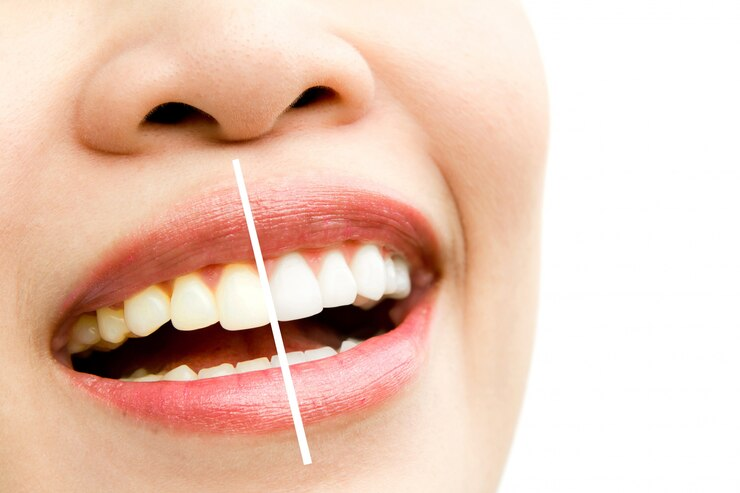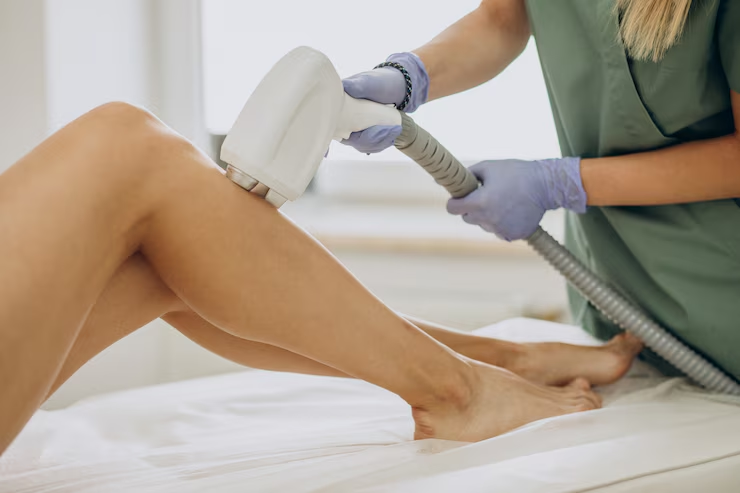Can You Trust Acne Scar Treatment Claims?
Acne scars can be a lingering reminder of past breakouts, and many people seek effective solutions to restore their skin's appearance. However, with the abundance of acne scar treatment claims available today, it’s essential to separate fact from fiction. The rise of advanced treatments promises remarkable results, but can you trust these claims? When considering acne scar treatment, it’s vital to focus on professional treatments backed by science, administered by skilled dermatologists and medical experts. These treatments are specifically designed to target different types of scars and promote skin healing. If you’re in Dubai, Acne Scar Treatment in Dubai offers a range of medically-proven procedures to help you regain a smooth, clear complexion.
Understanding Acne Scars
Acne scars are the result of inflammation in the skin due to acne lesions. When the skin is damaged, either through deep inflammation or the healing process of acne, it can lead to scarring. There are different types of acne scars: atrophic scars, hypertrophic scars, and keloids. Each requires a unique approach for treatment. Professional dermatologists assess the type and severity of scars to recommend the most appropriate treatment, ensuring a personalized approach.
How Do Dermatologists Treat Acne Scars?
Dermatologists utilize several advanced treatments to help patients achieve smoother skin and reduce the appearance of scars. These treatments rely on science-backed techniques and focus on skin regeneration. Below are some of the most trusted treatments:
Laser Treatments
Laser therapy is one of the most effective ways to treat acne scars. Using a targeted light beam, dermatologists can treat the skin’s deeper layers, stimulating collagen production and improving skin texture. Two popular laser treatments are Fractional CO2 Laser and Erbium Laser. Both are non-invasive procedures that target acne scars at various depths, promoting skin regeneration without the need for invasive surgery.
Fractional CO2 Laser: This laser creates micro-injuries in the skin, allowing it to heal and regenerate. It’s particularly effective for deeper acne scars, as it stimulates collagen production in the dermis.
Erbium Laser: This is ideal for milder scars and works by removing layers of skin tissue, allowing new, healthy skin to grow in its place. It’s a gentler alternative compared to CO2 lasers.
Microneedling
Microneedling, also known as collagen induction therapy, is another trusted treatment option for acne scars. This involves the use of tiny needles to create controlled punctures in the skin, triggering the body’s healing response and promoting collagen and elastin production. The treatment is ideal for treating atrophic scars, particularly those that appear as depressions or pitted marks on the skin. Since it stimulates the skin’s natural healing process, microneedling is a safe and effective solution with minimal downtime.
Chemical Peels
Chemical peels involve the application of a chemical solution to the skin, which exfoliates the outermost layers and encourages the skin to shed dead cells. The new skin that emerges is often smoother and clearer. This treatment helps fade hyperpigmented acne scars and improve the texture of the skin. Depending on the severity of the acne scars, dermatologists may recommend light, medium, or deep chemical peels. The deeper the peel, the more noticeable the improvement in skin texture.
Subcision
Subcision is a procedure where a needle is inserted into the skin beneath the scar to break up fibrous tissue. This helps lift depressed scars and improves the overall appearance of the skin. Subcision is often combined with other treatments like laser therapy or microneedling for more significant results.
Dermal Fillers
Dermal fillers are a temporary but effective treatment for deeper acne scars, particularly for those with atrophic scars. A dermatologist injects hyaluronic acid or other filler substances into the affected areas to raise the depressed scars, making the skin surface smoother. While the results are not permanent, dermal fillers can provide immediate and visible improvement.
Platelet-Rich Plasma (PRP) Therapy
PRP therapy uses the patient's own blood to rejuvenate the skin. The blood is processed to extract platelets, which are then injected into the skin to stimulate collagen production. PRP therapy is beneficial for both acne scars and general skin rejuvenation. The procedure promotes faster healing, reduces scarring, and improves the skin’s overall texture and tone.
Micropunch Grafting
In cases of more severe scarring, dermatologists may recommend micropunch grafting. This procedure involves removing the scar tissue using a small punch tool and replacing it with a healthy skin graft. This is usually reserved for the most persistent and deep scars and offers a permanent solution to severe scarring.
Can You Trust Acne Scar Treatment Claims?
While many acne scar treatment claims sound promising, it’s crucial to approach them with caution. Treatments that are performed by professional dermatologists using scientifically proven methods tend to yield the best results. Claims from unverified sources or those offering unproven treatments should be scrutinized carefully. It’s always best to consult with a certified dermatologist to understand the best approach for your skin type and acne scars.
Dermatologists assess your scars' severity and type, offering treatments that are tailored to your skin’s needs. Professional treatments, unlike over-the-counter products or DIY treatments, are backed by research and clinical trials, ensuring you receive the highest standard of care and results.
Benefits of Professional Acne Scar Treatments
The advantages of trusting dermatologists for acne scar treatment are clear. Professional treatments offer:
- Personalized care: Treatments are tailored specifically to your skin type and scar severity.
- Scientific backing: Dermatologists rely on scientifically-proven methods to treat acne scars, ensuring results that are safe and effective.
- Long-lasting results: Professional treatments provide long-lasting results that cannot be matched by over-the-counter products.
- Improved skin texture: Acne scars can significantly impact the skin’s texture. Professional treatments help restore smooth, clear skin by promoting collagen production and skin regeneration.
FAQs
What is the best treatment for acne scars? The best treatment depends on the type of scar. Options like laser therapy, microneedling, and chemical peels are commonly recommended by dermatologists.
How long does it take to see results from acne scar treatments? Results vary based on the treatment. Laser treatments and microneedling can show visible improvements within 3-6 months, depending on the severity of the scars.
Is microneedling effective for acne scars? Yes, microneedling is highly effective for treating atrophic scars by stimulating collagen production and improving skin texture.
Can acne scars completely disappear with treatment? While complete removal may not be possible for everyone, treatments can significantly reduce the appearance of scars and improve the skin's overall texture.
How many treatments do I need to remove acne scars? The number of treatments required depends on the severity of the scars and the treatment method. Most patients need several sessions to achieve optimal results.
Conclusion
Acne scar treatment claims can often seem too good to be true, but with the right knowledge and professional care, you can achieve significant improvement. Dermatologist-led treatments such as laser therapy, microneedling, and chemical peels are the most effective ways to reduce the appearance of acne scars. Whether you're in Dubai or elsewhere, working with a qualified dermatologist ensures that you trust only proven methods for your acne scar treatment journey.




Comments
Post a Comment